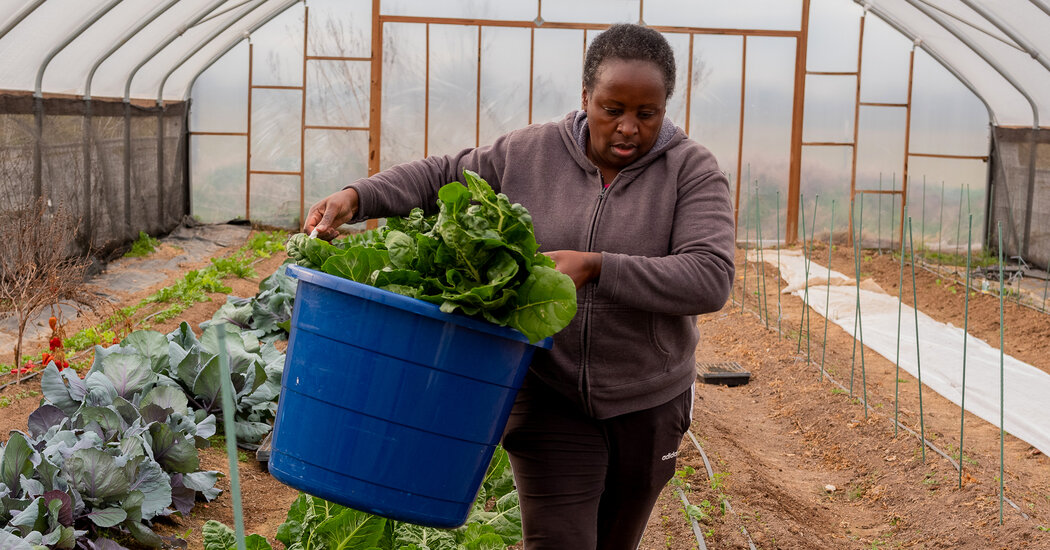
Jane Watiri Taylor was working as a nurse at the Travis County Jail in Austin, Texas, when the pandemic hit. She called it the most frightening time she could remember in 10 years of nursing. Not only was she worried about catching the virus during her shifts, but some inmates took out their anger and frustration on her.
“One time this person literally tried to spit on me,” she remembered. “They said, ‘I have Covid, and I’m going to give it to you.’ They spit on my scrubs; luckily it never got on my face.”
For Ms. Watiri Taylor, 54, like so many other health care workers, “the burnout was real.”
“I like taking care of people. But at that point, I was like, ‘I think I’m going to change jobs and start taking care of plants,’” she said. “You know, plants are never going to call me names, or insult or abuse me. I really needed to get out of that job.”
In July 2021, she left to pursue a dream she’d had since her childhood in Kenya: to become a farmer.
She had been growing fruits and vegetables in her backyard since 2015. To learn how to run her own farming business, she signed up for a class through Farmshare Austin, a nonprofit. She subleased a small piece of land in Lexington, Texas, to grow fruits and vegetables on a larger scale. She now sells her produce at local farmers’ markets.
“I want to nurture people; that’s why I got into nursing,” she said. “With farming, you are still nurturing people, but in a different way. It is really satisfying when you grow stuff and are able to know that eventually it is going to help make sure someone has got food on the table and it is going to nourish their bodies. And to me, that’s enough.”
Farming is much less predictable than nursing, and the financial instability worries her. Still, she says she is much happier than when she was working as a nurse.
“Money is important,” she said. “But I want to be able to wake up every morning excited about what I’m doing. And that’s how I feel about farming.”
“It was time for me to take a step back.”
Adam Simon




